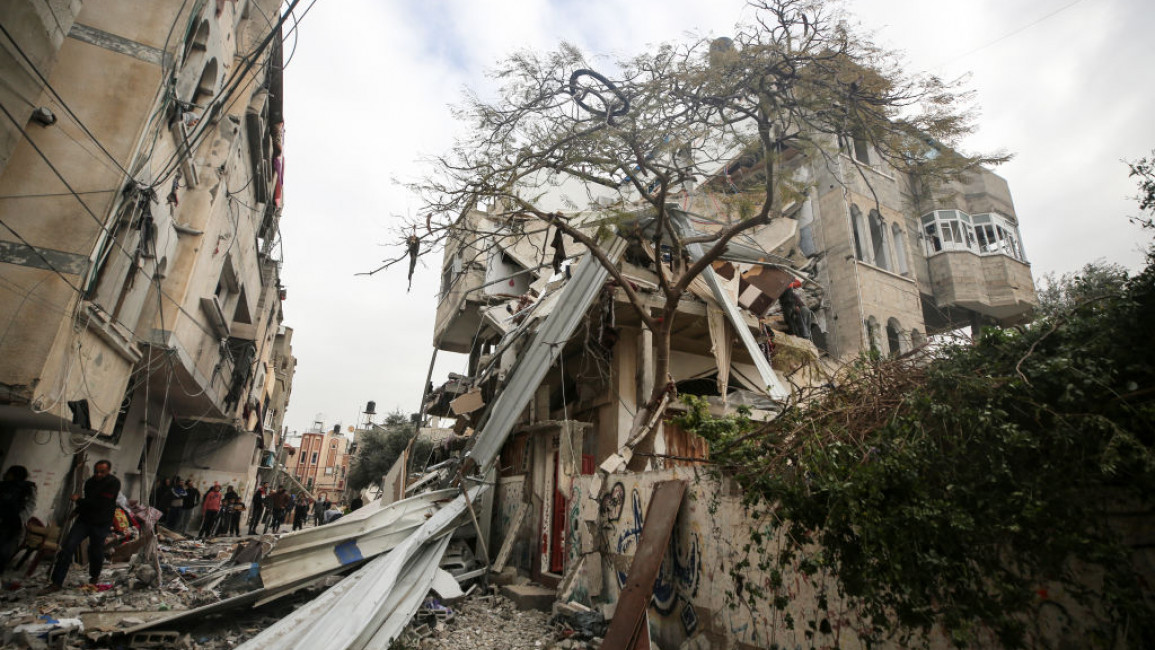Israel placed heavy restrictions on media amid Gaza war
Israel has banned journalists from covering issues including details about hostage negotiations and weapons systems its military uses, an official document has shown.
The media directive from the army's chief censor is in English and was obtained by US media outlet The Intercept.
While undated, the document's title included the phrase "Operation 'Swords of Iron'" – the codename for Israel's indiscriminate war on Gaza, which has so far killed over 20,400 people in the Palestinian enclave. It indicates the directive was made at an unknown point following the start of the fighting on 7 October.
"I haven't ever seen instructions like this sent from the censor aside from general notices broadly telling outlets to comply, and even then it was only sent to certain people," said Michael Schaeffer Omer-Man, who was editor-in-chief of left-wing Israeli news organisation +972 Magazine for seven years until 2019.
The Intercept said it acquired the media directive from a source who had received a copy from the Israeli army.
The US outlet also linked to what it called an "identical document" available on the Israeli government website.
The directive read: "In light of the current security situation and the intensive media coverage, we wish to encourage you to submit to the Censorship all materials dealing with the activities of the Israeli Defence Forces (IDF) and the Israeli security forces prior to their broadcast."
It went on to list eight issues that "are not allowed for broadcasting" and "should be submitted to the Israeli Censor prior to their publication".
Hostages were one of these subject areas, with banned information including personal details, their medical situation, and "Israeli negotiation positions and any details concerning the negotiation for their release".
Hamas and other Palestinian militants carried out a surprise attack inside Israel on 7 October, killing 1,139 people.
The attack saw some 250 hostages taken to Gaza, with around 130 remaining in the enclave.
Troop movements, operational plans, and intelligence about the "intentions and capabilities of the enemy" were also not for broadcast or publication, according to the Israeli document.
Vulnerabilities in Israel's defence capabilities were also on the prohibited list, including the "deployment, location and capabilities of the Iron Dome system and other air and missile defence systems".
Other information banned in the media directive included details of weapons systems used by the Israeli military and any of its equipment captured by "the enemy", even if journalists were basing their reports on "enemy news".
It was also prohibited to report on rocket attacks that struck strategic infrastructure targets like power plants and military and defence bases.
Media were similarly banned from reporting on the presence of high-level officials like Prime Minister Benjamin Netanyahu or members of the Israeli parliament during visits to the combat zone.
The final topic listed in the document concerned the Israeli security cabinet.
"Any reports concerning details and information from the Cabinet meeting must be submitted to [the] Israeli Censor prior to their broadcast," it said.
The Intercept said the document being written in English indicates it was meant for Western outlets, adding that journalists from abroad operating in Israel are required to agree to conform with the censor.


![Minnesota Tim Walz is working to court Muslim voters. [Getty]](/sites/default/files/styles/image_684x385/public/2169747529.jpeg?h=a5f2f23a&itok=b63Wif2V)




![Debris near Rafic Hariri International Airport [Getty]](/sites/default/files/styles/image_330x185/public/2176162423.jpeg?h=a5f2f23a&itok=MCSK9mkM)
![An Israeli air strike on Jabalia killed teenage journalist Hassan Hamad [Screengrab/X]](/sites/default/files/styles/image_330x185/public/2024-10/hassan%20hamad1.jpg?h=c12e0b96&itok=Rd_dyCVp)
